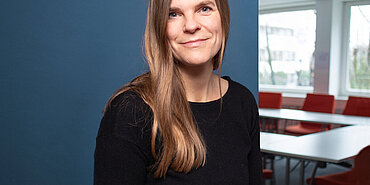The nine senior citizens experts flew to Kumamoto, 30% of whose population is accounted for by elderly individuals. Model projects in this region demonstrate that senior citizens requiring care can remain in their familiar surroundings longer if there are day-care facilities in the area – such as the Koshi Centre – that offer a variety of activities for senior citizens, children and persons with disabilities all under the same roof, making daily life easier for everyone. This is complemented by voluntary neighbourhood schemes such as Pokka Pokka. “Salons” are attractive places for individuals to spend time together and escape isolation. They also provide information on dementia and, similar to Germany’s multi-generation houses, enable lively interaction between the generations at the local level.
Here and during the local seminar, the German delegation sat down with around 80 young Japanese experts to share Germany’s experiences with multi-generation houses, local alliances, volunteer schemes and support for them by NGOs working under the umbrella of BAGSO, the German National Association of Senior Citizens' Organisations.
Conclusions from the Regional Programmes
The participants from all four countries unanimously agreed that the potentials of the “young older citizens” need to be better used. This requires a more realistic portrayal of what it means to be old, also in the media. Information about the German travelling exhibition “What’s old anyway?” was received with much interest.
In all four countries, the number of older individuals will continue to increase while birth rates decline. In Japan, this is already leading to severe challenges since the overall population is currently shrinking, which is not the case in Germany, for instance, where there is more immigration.
Final remarks
The German delegation were deeply impressed by Japan’s high-quality, positive activities that put individuals in the spotlight and help the elderly to stay in their familiar surroundings for longer and participate actively in society. We also agreed that this is the ideal human rights-based approach – the kind that a truly inclusive society needs.
All participants were certain that the creation of spaces where young and old can engage (e.g., Germany’s multi-generation houses) is vital. They suggested, for instance, to hold photography competitions involving young people that help to create a realistic picture of what old age means today. This kind of awareness-raising can also help to improve the image of elderly care. For instance, the German exhibition “What’s old anyway?” could also be shown in Japan in order to inspire a wider debate.
It was obvious to the German delegation that in Kumamoto, there appears to be a strong awareness of the potential of senior citizens, as reflected in the prefecture’s motto “Don’t be afraid of old age, enjoy your old age, and stay active”.
The Regional Programme, in particular, encouraged us to follow the developments surrounding senior citizens in Japan more closely in future. Germany has a lot to learn from Japan, especially given that 10 million members of the baby boomer generation will soon reach retirement age.
To conclude, let me mention one highlight that stood out despite the as always tightly-packed agenda: a weekend spent with a Japanese host family. I was privileged to spend time with two sisters my own age and their families and visit the Asa volcano and the beautiful Kumamoto mountains.
If ever an occasion to go on an exchange like this to Japan presents itself, I thoroughly recommend that it be seized. IJAB will continue to support the Federal Ministry in executing this programme, and its outstanding introductory courses are an excellent way to prepare for these special visits. I am hence deeply grateful to IJAB for its support.




